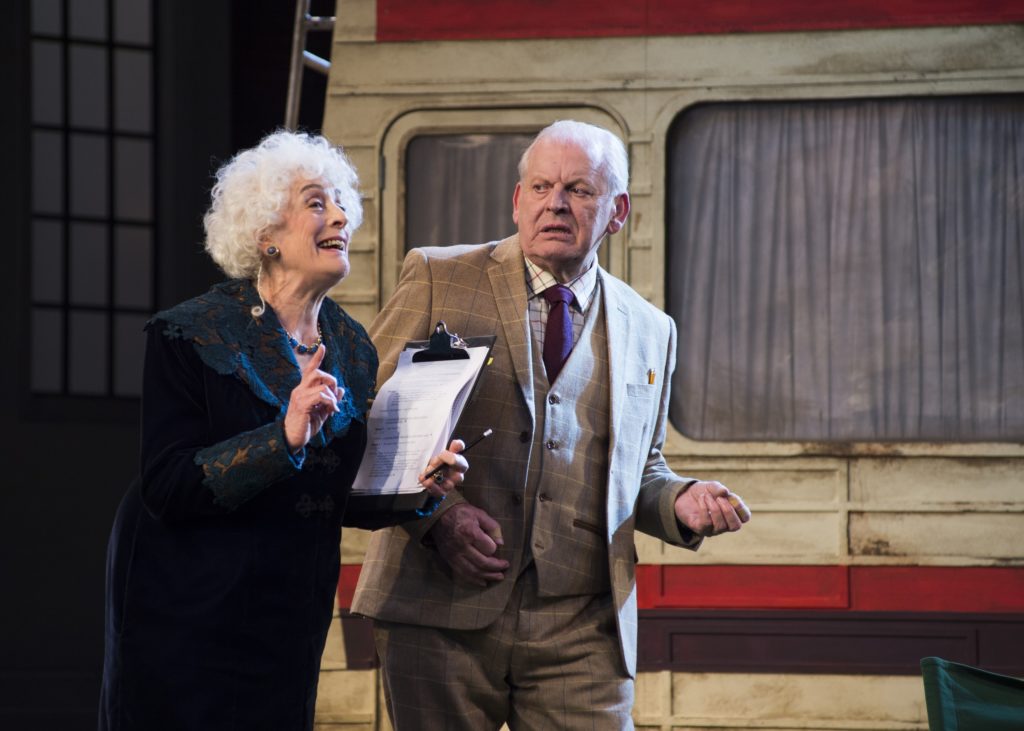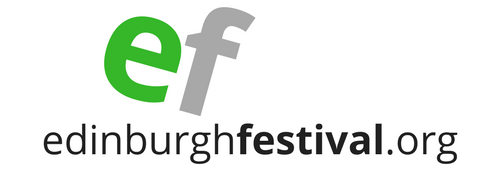
Ariadne auf Naxos
In the mansion of the richest man in Glasgow (no capital sensibilities are pandered to here) preparations are underway for an evening’s entertainment supervised by a formidable party planner. But there’s a slight problem – a new opera has been commissioned, however, there is also a burlesque troupe performing – and the highbrow Opera troupe as just as outraged as Zerbinetta’s burlesque troupe about the idea of performing on the same evening.
Lady Franson, the deft party planner, played by Eleanor Bron, reminds the Professor of Composition and his student the Composer that they are being paid to perform – and things are about to worsen. Because the guests have spent too long at their feast, and with a crucial part of the evening’s entertainment – the fireworks – scheduled to take place promptly at 9pm, both groups of entertainers are told that they will need to perform simultaneously.
Despair for the Composer, but the worldly Producer sees a way to combine both opera and cabaret – so the opera must be cut to allow Zerbinetta and her troupe to improvise around it.
This is the scenario played out on the lawn in front of the mansion, populated by mobile homes and caravans to house the different groups forming the prologue, before the potentially explosive performance to follow after the interval.
The fact that the Composer is played by a female (Julia Sporsén) does little to diminish the palpable sensuality between her character and Jennifer France’s sparkling Zerbinetta, and their duet in the prologue, when we see the hidden side of both of their characters revealed, is delightfully sung and erotically charged.
The stage is set for what seems set to be an almighty tussle between high and low art, and the forthcoming clash between the egos of the two duelling sopranos. The first part of the performance is in English rather than the original (and the main act’s German) in a new translation by Helen Cooper makes the first half far easier to enjoy.
It’s part of the unique and intriguing nature of this opera, which went through artistic battles of its own when it was first created, that there’s a duality running throughout this, musically and visually, with the monochromatic starkness of the opera stars contrasted with the colourful costumes and outrageous flamboyance and circus tricks of the burlesque performers.
Like the unseen audience in the mansion, Edinburgh’s opera-goers are able to quaff a few glasses and devour some ice-cream before the ‘real show’ begins.
The staging for the second act is stark but evocative, and it begins with the isolation of Ariadne, tended by her three companions, Naiad, Dryad and Echo. When the burlesque players first emerge, it is not with expected mocking or sarcasm, but a surprising warmth and sympathy for the isolation of Ariadne that emerges.

Elgan Llyr Thomas, Alex Otterburn, Daniel Norman and Lancelot Nomura in Ariadne auf Naxos. Photo: Richard Campbell.
The acoustic shortcomings of the Festival Theatre are occasionally clear, when the relatively small orchestra (by Strauss’ standards at least) rather engulf the vocal performances, but all of the ensemble make allowances for this, with both sopranos delivering hall-filling arias, with France rather stealing the show with a seductively revealed visually provocative outfit and a virtuoso performance of the grand coloratura aria “Großmächtige Prinzessin” gaining sustained and appreciative applause.
But the performances of the other prima donna on the stage is not less accomplished, with Mardi Byers as Ariadne, particularly in her duets with Bacchus played powerfully by Kor-Jan Dusseljee. The part of Bacchus is a huge vocal challenge, and Dusseljee did more than acquit himself, indeed, the movement, singing, work of the orchestra and some deft lighting touches made this a beautiful spectacle to witness.
The additions to the costumes of Naiad, Dryad and Echo, with wing-like sweeps, used to frame Ariadne like the wings of mythical creatures, were spectacularly effective, and the overall elegance of both the music, vocal performances and staging made this a hugely entertaining evening.
The sponsors and supporters of Scottish Opera invest a great deal of work and money in making Scottish Opera so affordable and accessible, and it’s refreshing to see that prices for performances start from just £10 for those under 26. There are also free pre-show talks and ‘Opera Unwrapped’ tasters from just £5.
4 stars ★★★★
OPERA UNWRAPPED
Edinburgh
Fri 6 Apr, 6pm
PRE-SHOW TALK
Edinburgh
Sat 7 Apr, 6pm
PERFORMANCE: ARIADNE AUF NAXOS
Edinburgh
Sat 7 Apr, 7:15pm
Scottish Opera
Book Tickets here


